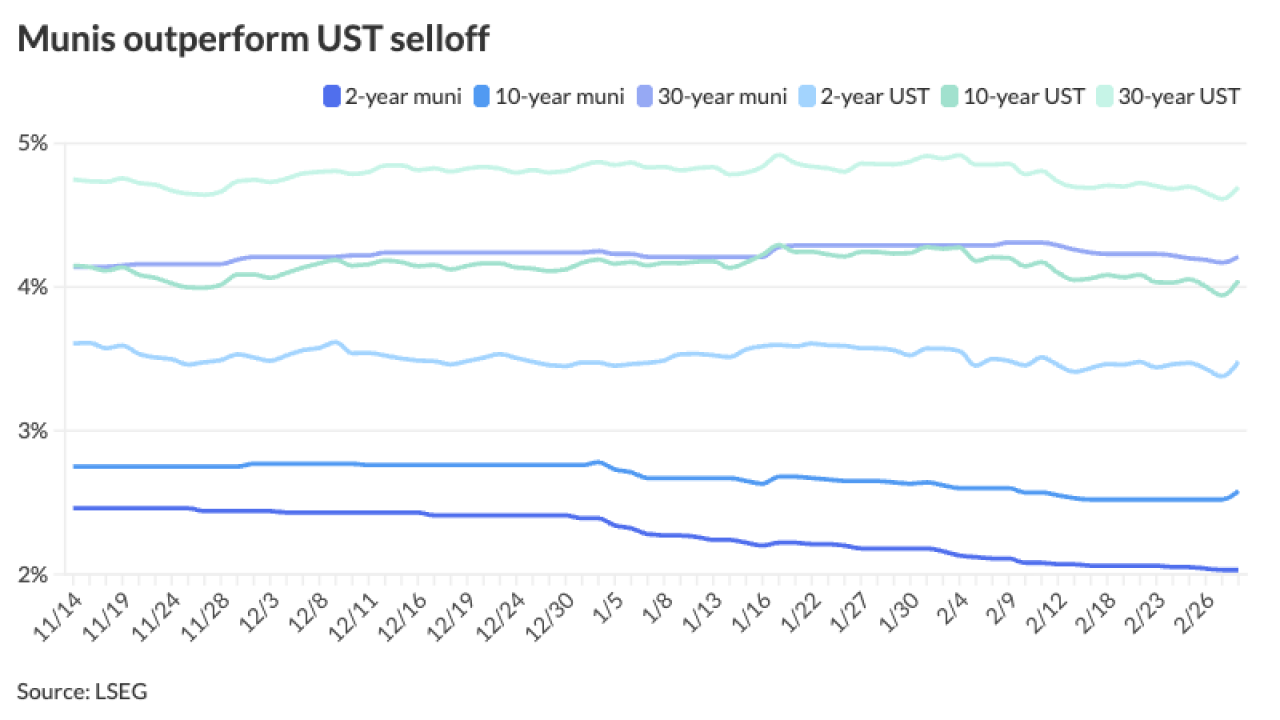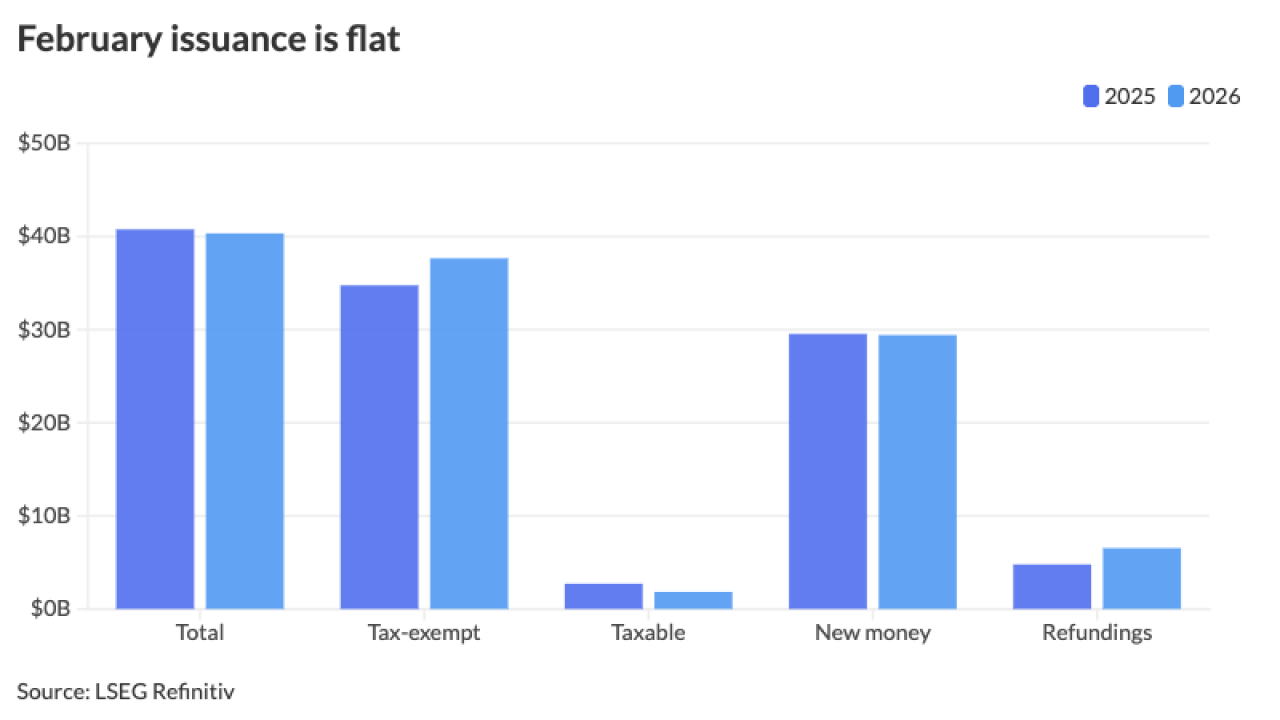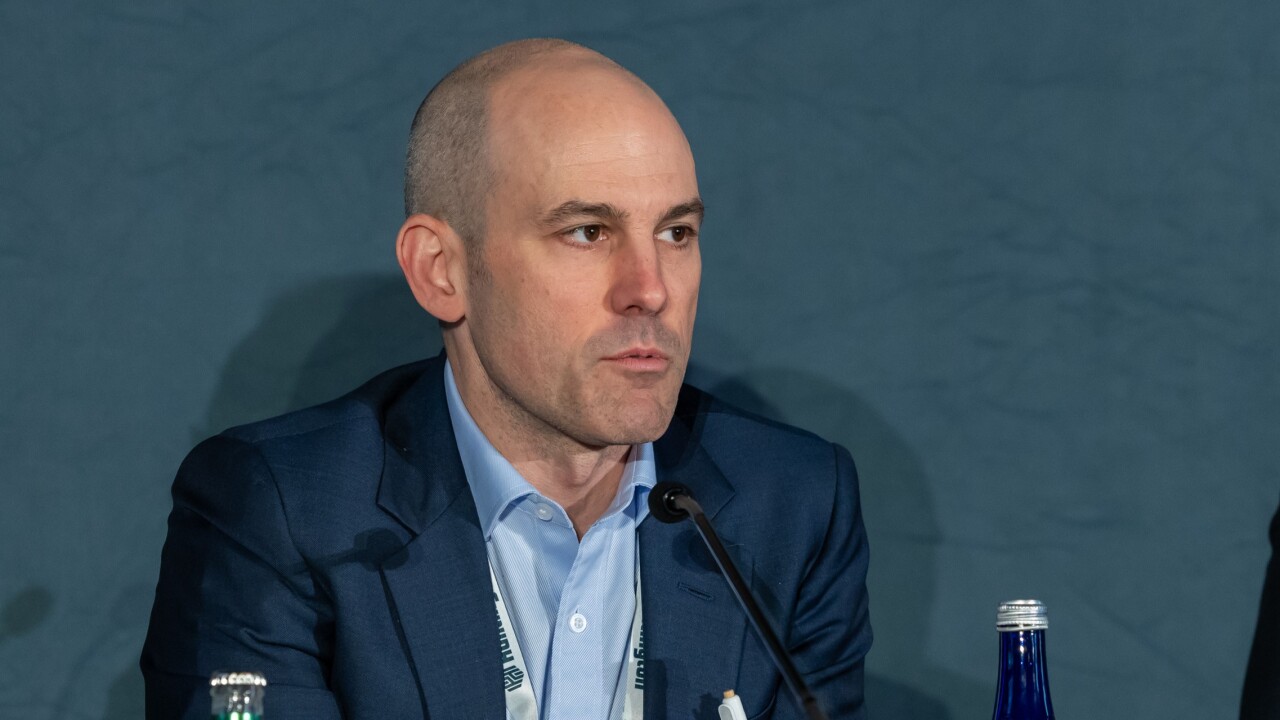ACA Financial Guaranty Corp., facing ratings uncertainty over management changes and capital adequacy requirements, last week reported a 65% increase in first quarter earnings of $4.1 million, compared with $2.5 million in the first quarter of last year.
The bond insurer plans this week to announce a replacement for chief executive Michael Satz, a spokeswoman said Friday. Satz announced his resignation on May 7, citing personal reasons.
Also Friday, the company announced that executive vice president William Tomljanovic would assume responsibility for the companys structured finance business, including the profitable collateralized debt obligation business managed by chief operating officer Maryam Muessel. Muessel quit on April 30.
ACA had forecast strong first quarter results in a conference call after Fitch Ratings earlier this month placed the company on negative watch. Fitch last week downgraded the company from A to BBB.
ACAs first quarter results confirm the financial strength of our company, an ACA spokeswoman said Friday.
Gross premiums written in the first quarter increased to $17.5 million from $11.5 million in the year-earlier period. Minus the amount of premiums ceded, net premiums written rose to $16.7 million from $11 million a year ago, according to unaudited results the company released last week.
For all of 2003, ACA reported net income of $17.2 million, nearly tripling 2002s net income of $4.6 million. Gross premiums written for 2003 rose to $66 million, compared with $55.3 million in 2002.
But Fitchs rating actions have nothing to do with the operational aspects of the company, said managing director Tom Abruzzo.
Analysts agree that despite the companys strong results, its IPO prospects critical to the companys future business have dimmed. ACA must consider alternatives to raising the capital that is critical to determining their future business prospects, according to Howard Mischel, director of Standard & Poors global bond insurance.
Fitch downgraded ACA over increasing uncertainty with respect to the companys management changes, capital constraints, and impact of lower ratings on the business model.
ACA subsequently asked the rating agency to withdraw its insurer-strength rating on the company.
Standard & Poors, which rates ACA an A, placed the insurer on CreditWatch with negative implications last week, noting that the companys planned IPO was made less certain by the departures of the executives. The agency also noted that the watch listing could be resolved favorably if necessary capital is raised and the management uncertainty is resolved.
Whether the recent shake-up has sufficiently spooked bond investors remains to be seen, though Brad Bode, vice president at American Century Investments, said investors confidence has ebbed over the departures and the recent downgrade.
Following Fitchs downgrade, there are few-if-any municipal bonds backed by the troubled insurer that were trading as of late last week, Bode added.
Prices have deteriorated so much that people simply arent willing to sell, Bode said, adding that the price of the bonds in question depends on factors like purchase price, maturity date, and the underlying credits rating.
He also questioned whether there would be a market for ACAs insurance if its rating does not improve. If you are a triple-B entity, then what good does it do to get insurance from another triple-B rated entity, Bode asked.
Ken Salinger, a vice president at American Century Investments who oversees bond funds in Arizona and Florida as well as the roughly $600 million National Tax-Free Bond Fund, said the latest downgrade has not affected his ability to hold muni bonds insured by ACA, since the insurer still carries an investment grade rating. He added that, across the board, American Century Investments holds very little ACA-insured municipal debt.
But, like Bode, Salinger said the downgrade might prevent ACA from accessing equity markets in the immediate future.
Todd Curtis, who manages a state-specific Arizona municipal bond fund for Banc One Investment Advisors in Scottsdale, Ariz., is in wait-and-see mode. Curtis, who said he holds only two or three bonds insured by ACA, is not overly concerned about the downgrade. The underlying credits on those bonds are solid and the ACA insurance is mostly just padding, he said. Although it will be difficult for ACA to access equity markets going forward, Curtis said it could still happen. Im thinking that they will be able to pull it together, he said of the companys future prospects.





